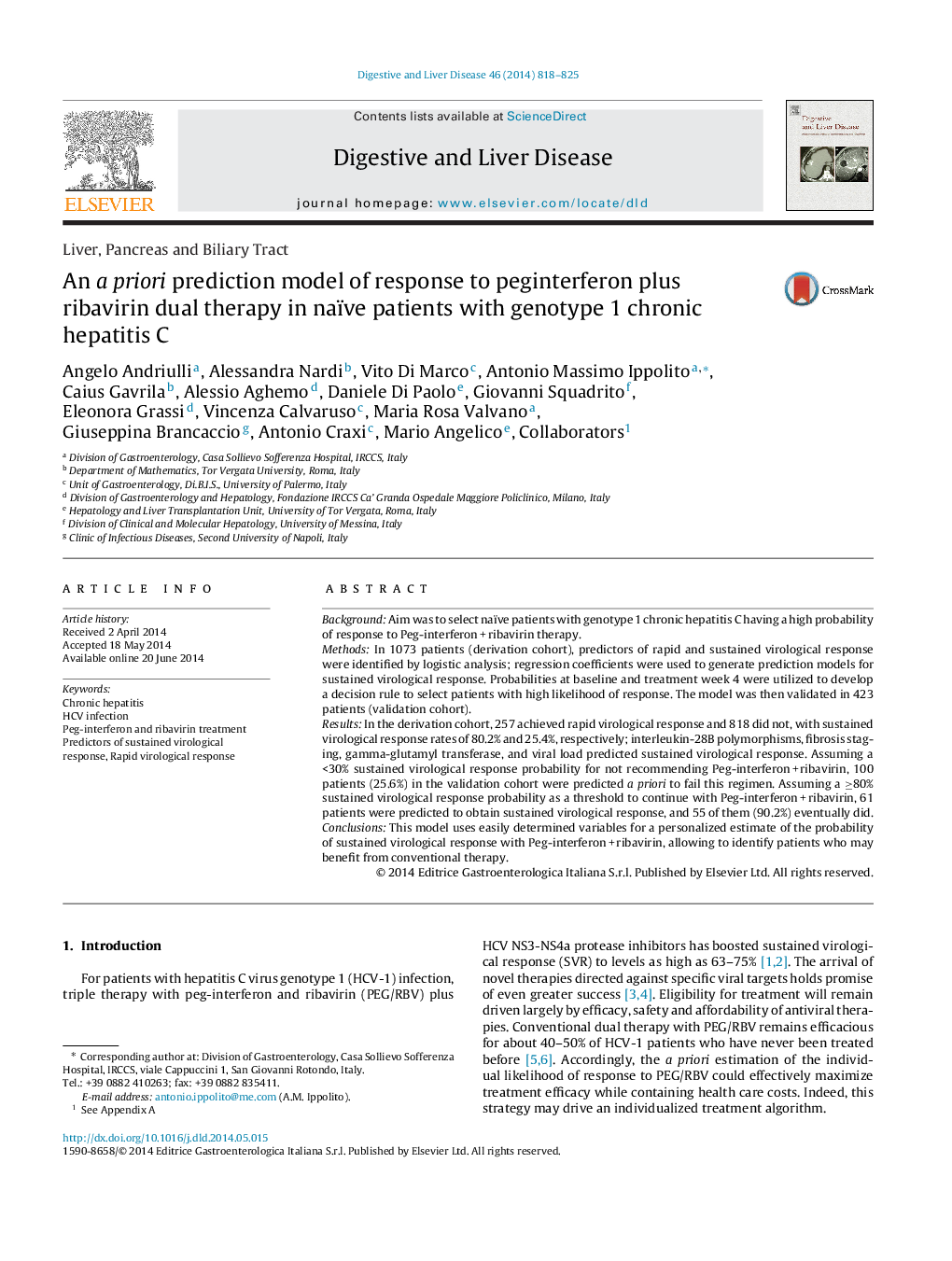| Article ID | Journal | Published Year | Pages | File Type |
|---|---|---|---|---|
| 6088371 | Digestive and Liver Disease | 2014 | 8 Pages |
BackgroundAim was to select naïve patients with genotype 1 chronic hepatitis C having a high probability of response to Peg-interferon + ribavirin therapy.MethodsIn 1073 patients (derivation cohort), predictors of rapid and sustained virological response were identified by logistic analysis; regression coefficients were used to generate prediction models for sustained virological response. Probabilities at baseline and treatment week 4 were utilized to develop a decision rule to select patients with high likelihood of response. The model was then validated in 423 patients (validation cohort).ResultsIn the derivation cohort, 257 achieved rapid virological response and 818 did not, with sustained virological response rates of 80.2% and 25.4%, respectively; interleukin-28B polymorphisms, fibrosis staging, gamma-glutamyl transferase, and viral load predicted sustained virological response. Assuming a <30% sustained virological response probability for not recommending Peg-interferon + ribavirin, 100 patients (25.6%) in the validation cohort were predicted a priori to fail this regimen. Assuming a â¥80% sustained virological response probability as a threshold to continue with Peg-interferon + ribavirin, 61 patients were predicted to obtain sustained virological response, and 55 of them (90.2%) eventually did.ConclusionsThis model uses easily determined variables for a personalized estimate of the probability of sustained virological response with Peg-interferon + ribavirin, allowing to identify patients who may benefit from conventional therapy.
